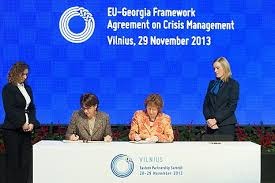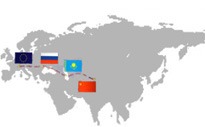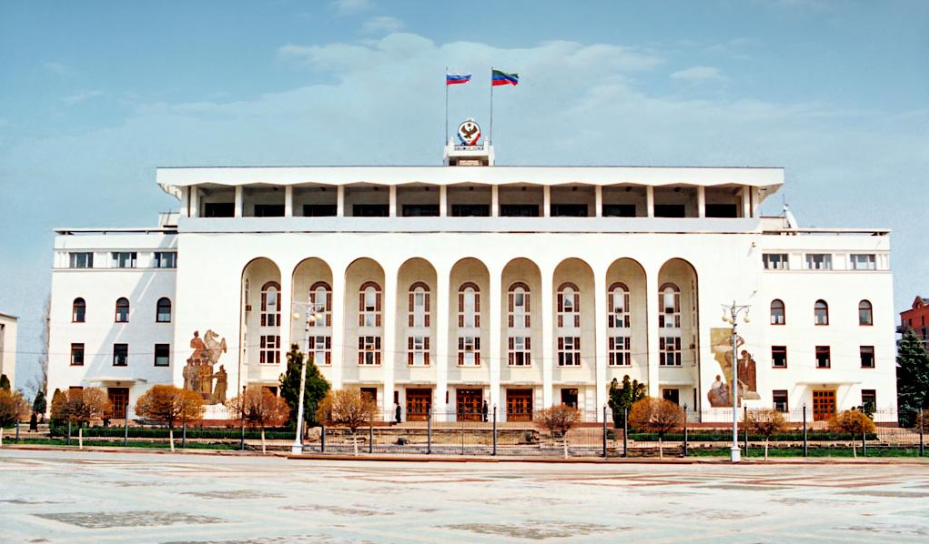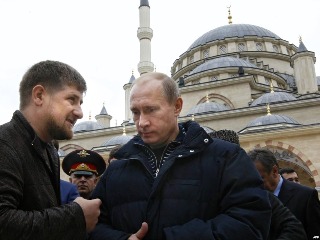“CACI Analyst, December 11, 2013”
Reaching The Summit: Implications of Vilnius for Georgia
By Stephen Jones (the 11/12/2013 issue of the CACI Analyst)
The November 29 initialing of Association Agreements (AA) in Vilnius between the EU on the one hand, and Georgia and Moldova on the other, have been interpreted almost exclusively in geo-political terms. The reasons for this are at least twofold: Armenia’s and Ukraine's withdrawal from their initial commitment to sign under pressure from Russia, and Russia’s own intervention in the process. Russia, behaving like something between a regional hegemon and a Cold War remnant defending its sphere of influence, framed the Vilnius Summit as a stark choice between East and West.

Massive East-West Transit Corridor Nears Crucial Phase
By Richard Weitz (the 11/12/2013 issue of the CACI Analyst)
The Western Europe-Western China International Transit Corridor aims to improve the efficiency and safety of the main roads between China and Europe that pass through Kazakhstan. Despite the international focus on promoting rail traffic through Eurasia, it is also important to build better roads since Central Asian countries can more easily input their goods through them than through railways. The roads also promote short-distance trading within and among Central Asian countries. Otherwise, extra-regional actors will simply see and treat Central Asia as a transit zone for their transcontinental railways, which would not provide additional incentives to invest in Central Asian economies.

Dagestan's New Administrative Division Reflects Governance Crisis
By Valeriy Dzutsev (the 11/12/2013 issue of the CACI Analyst)
In a surprise move, Dagestan’s President Ramazan Abdulatipov has decreed to divide the republic into four sub-regions, each of which will have a plenipotentiary representative of the republican president. While Abdulatipov reassures the public that the move will strengthen Dagestan's unity, there is also a risk that it may worsen the conflict in the republic and increase demands for its actual division. The government’s decision to substitute substantive reforms in Dagestan with an administrative reshuffle is unlikely to resolve the conflict-prone republic's pressing problems.

New Anti-Terrorism Law to Target Families of North Caucasus Insurgents
By Huseyn Aliyev (the 11/12/2013 issue of the CACI Analyst)
New legislation adopted by the Russian parliament in November, aimed at punishing families and relatives of terrorist suspects, intends to legalize the “hard” form of counter-insurgency already practiced in several North Caucasus republics. The new law allows authorities to confiscate the assets of suspected terrorists' family members, and obligating them to compensate for damages incurred by those acts. The new legislation entered into force on November 17 and although it has not yet been implemented in practice, the collective punishment practices it permits are already used by authorities across the restive North Caucasus.



